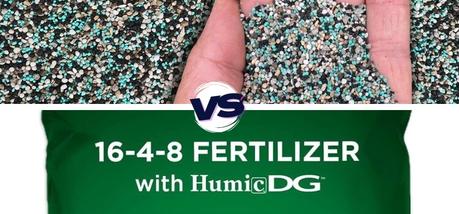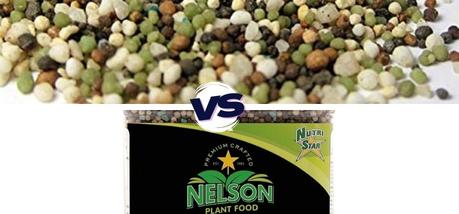As an Amazon Associate, I earn from qualifying purchases.

When it comes to lawn care, choosing the right fertilizer is a critical decision that can significantly impact the health and appearance of your lawn. In this comprehensive guide, we'll delve into the debate of "Lawn Fertilizer: Liquid vs. Granular," exploring the characteristics, benefits, and drawbacks of each type to help you make an informed decision for a lush and thriving lawn.
Lawn Fertilizer Basics
Understanding Liquid Fertilizers
Liquid fertilizers, often praised for their quick absorption, are a popular choice among homeowners aiming for rapid results. These fertilizers are typically water-soluble, making them easy to apply through various methods, including spraying or watering cans.
Advantages of Liquid Fertilizers
- Rapid Absorption: Liquid fertilizers are quickly absorbed by the soil, allowing plants to access nutrients almost immediately.
- By applying uniformly, nutrients are evenly distributed across the entire lawn.
- Versatility: Liquid fertilizers are versatile, suitable for both foliar and soil applications, providing flexibility in usage.
Considerations for Liquid Fertilizers
- Frequency of Application: Liquid fertilizers may require more frequent application compared to granular options, as their effects tend to be shorter-lived.
- Storage Challenges: Storage can be more challenging due to the liquid nature of the fertilizer, requiring appropriate containers to prevent spills.
Decoding Granular Fertilizers
Granular fertilizers, on the other hand, come in solid, pelletized form and are known for their slow-release nature. These fertilizers provide a steady and prolonged nutrient supply to the soil.
Advantages of Granular Fertilizers
- Long-Lasting Effects: Granular fertilizers release nutrients gradually, providing sustained feeding for an extended period.
- Many homeowners find granular fertilizers to be a convenient choice due to their ease of application and storage.
- Reduced Risk of Over-fertilization: The solid form of granular fertilizers reduces the risk of over-fertilization, allowing for a more controlled application.
Considerations for Granular Fertilizers
- Time to Action: While slow-release is an advantage, granular fertilizers may take longer to show visible results compared to their liquid counterparts.
- Application Challenges: Achieving uniform distribution can be more challenging, requiring precision during application to ensure equal coverage.
Finding the right fertilizer for your lawn

Making the right choice between liquid and granular fertilizer depends on various factors, including your lawn's specific needs, your preferred application method, and your maintenance preferences.
Factors Influencing Your Choice
- Speed of Results: If you desire quick results and don't mind more frequent applications, a liquid fertilizer might be the ideal choice.
- Long-Term Nutrient Release: For a set-it-and-forget-it approach with less frequent applications, granular fertilizers are a suitable option.
- Application Method: Consider whether you prefer a spray or a spread method, as this can influence your choice between liquid and granular options.
Conclusion
In the eternal debate of "Lawn Fertilizer: Liquid vs. Granular," there is no one-size-fits-all answer. Your decision should align with your lawn care goals, preferred application method, and maintenance schedule. By understanding the characteristics and benefits of both types, you can make an informed choice that transforms your lawn into a verdant masterpiece.
As an Amazon Associate, I earn from qualifying purchases.
